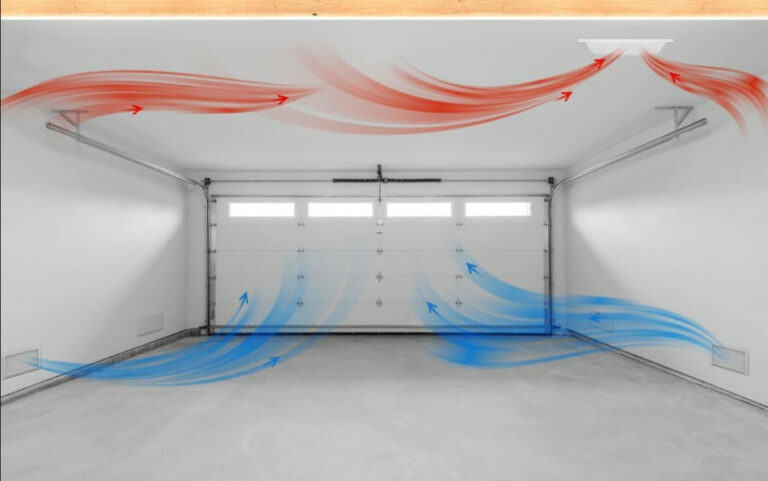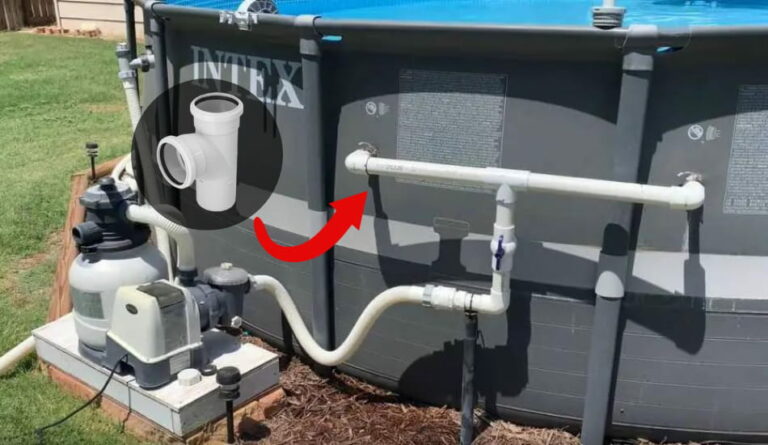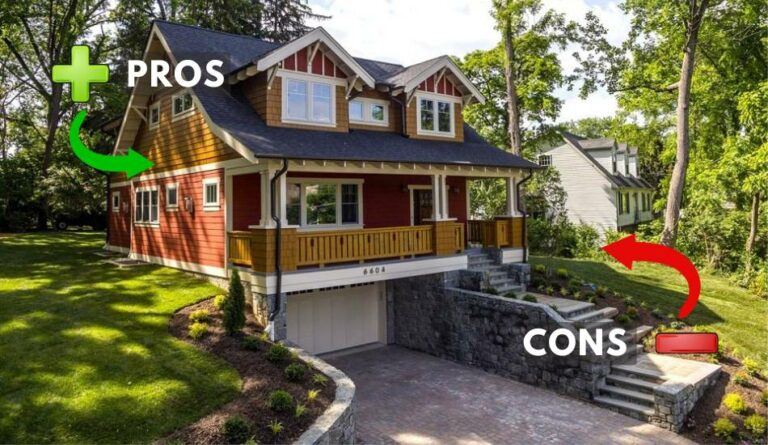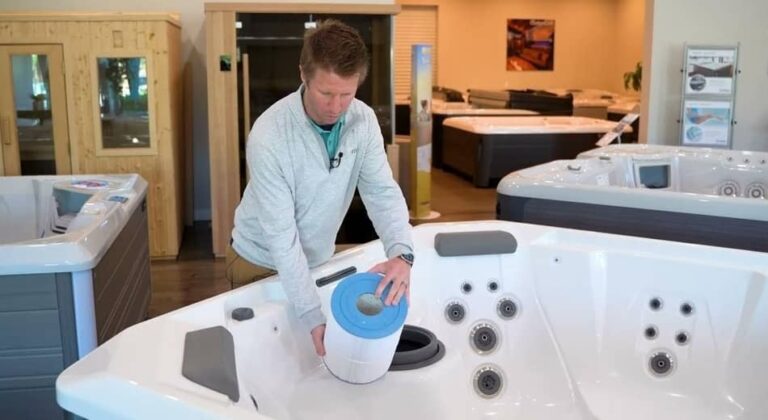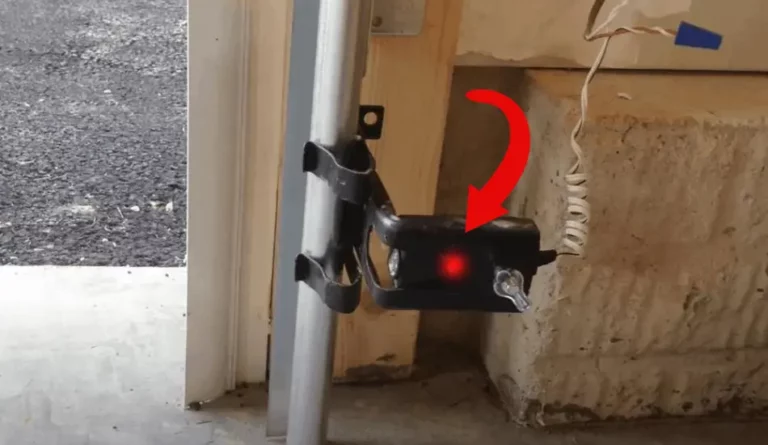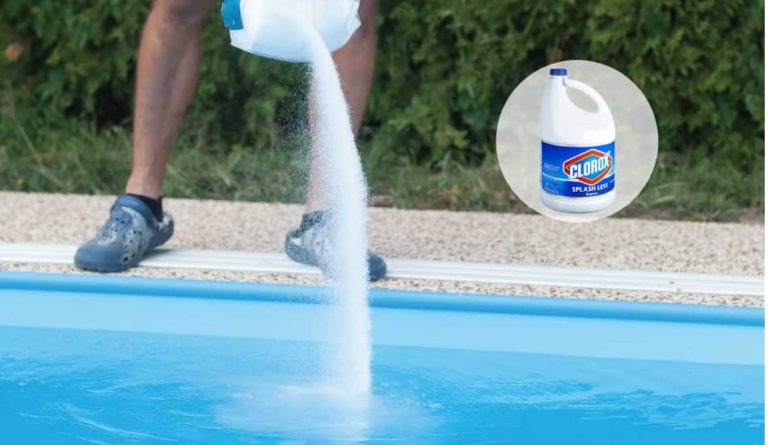Can You Put A Pool Under Power Lines?
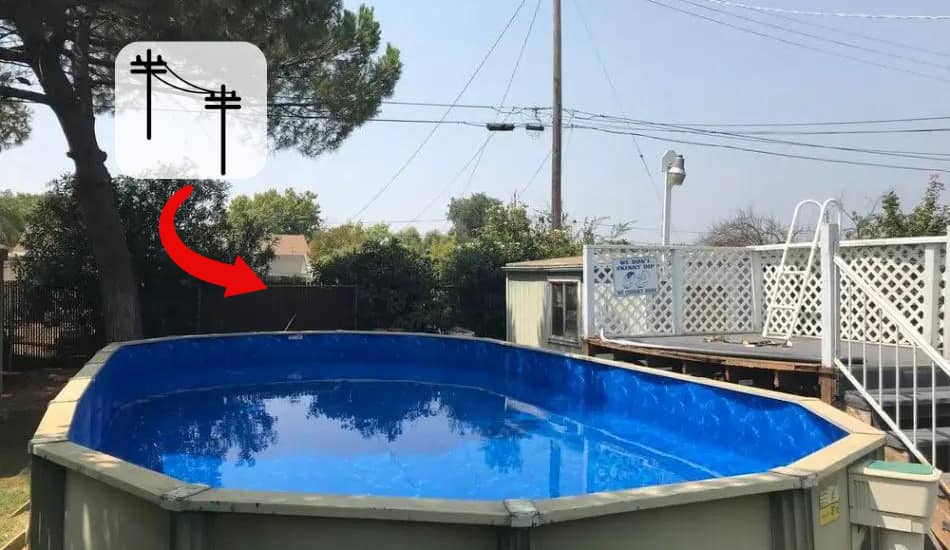
Having a swimming pool at home brings many advantages, especially for those who love to relax on hot summer days. But what happens if you put a pool under power lines? While it might initially seem harmless, having electricity near the water is risky.
According to the National Electric Code (NEC), there are certain requirements that you must follow when it comes to situations like these. Surprisingly, not every pool owner is aware of these rules. Therefore, placing a pool near electric lines can be very dangerous, and understanding why this is so is important. In this article, we’ll talk more about that.
Can You Put A Pool Under Power Lines? No, it’s not safe to put a pool under power lines. The risk of electric shock is significant if the power lines come in touch with water. The NEC states that power lines should be a minimum of 25 feet (7.6 m) from the pool, especially since there’s a chance of power lines falling during storms.
Placing a swimming pool under power lines is not a good idea because water and electricity do not go together. Although the power line is set quite high, it is still not a good idea to do this. We will go through these details in the next sections of this article.
Table of Contents
Safety Measures Related to Electricity Around the Pool
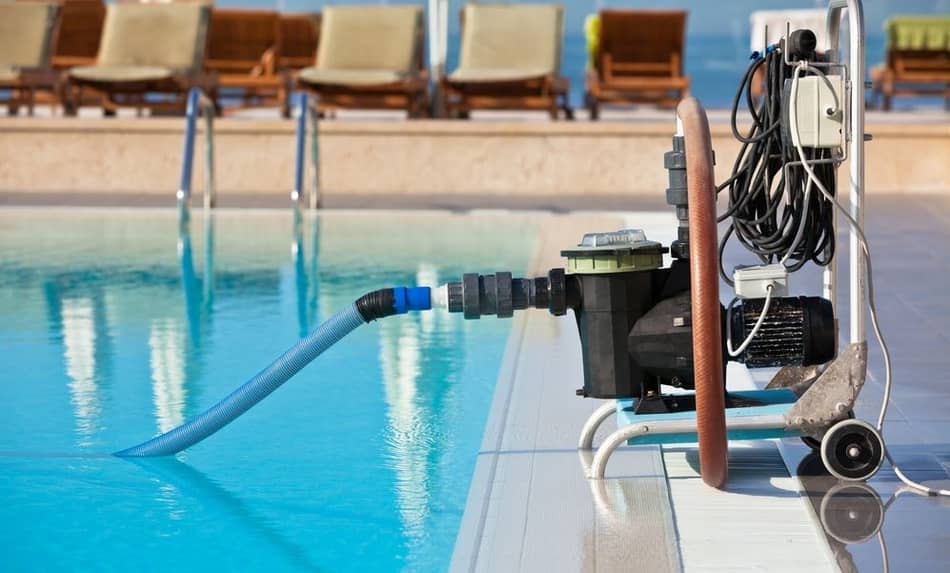
It’s important to remember that electricity and water don’t go together. Since water can also be found around the pool, it’s crucial to ensure everyone is safe from electric shocks. To do that, check that all the electrical devices you use are in good shape and protected properly. Even one little wire problem can be very dangerous when water is around.
So, it’s a good idea to call someone who knows about electricity, like a professional electrician, to review everything. Some electricians know a lot about pools, hot tubs, etc. Hiring one of them might be best because they can also tell you more about where you need to put your pool and how to protect it, especially if there are power lines nearby.
Related Article: Can You Put an Inflatable Hot Tub In a Basement?
Simple Rules For Pool Safety Near Power Lines
If you’re thinking of putting a swimming pool under power lines, there are some important rules that you need to follow. These rules are there to keep everyone safe. If you don’t follow them, it can be really dangerous.
Therefore, it’s important to keep the pool far from power lines and be sure to stick to these guidelines:
- Keep the pool about 30 feet away from any overhead power lines.
- If you want things like a diving board, overhead power lines should be no closer than 20 feet.
- Be careful of power lines in the ground, too. The pool should not be right over them and needs to be at least 5 feet away.
- Don’t have any electrical plugs or switches within 5 feet of the pool. The only exception is lights made especially for pools.
- If there’s any electrical wiring closer than 18 feet to the pool, you must ensure it has GFCI protection to keep it safe.
Related Article: Should We Fill A Pool With A Water Truck?
Understanding Power Lines When Planning Your Pool
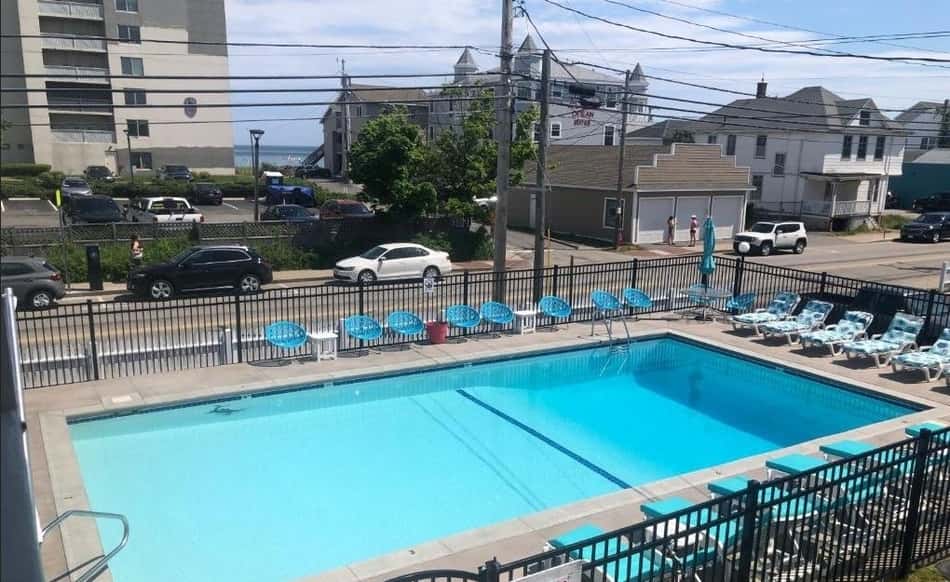
If overhead power lines are close to your home, it’s crucial to understand how they might influence where you can place your swimming pool or hot tub. Here’s what you should consider:
1. Minimum Distance Between The Pool And Power Lines
The pool and the power lines should be at least 25 feet (7.6 m) away from each other. If you consider adding diving boards, they should keep the same distance from the lines. However, communication cables have different rules. The space between these cables and the water or diving platforms should be about 12 feet (3.6 m).
Note! Measure the distance from the highest water level in the pool. This means the highest point the water can reach without spilling over.
2. Risks Of Putting A Pool Under Power Lines
While it’s not against the rules to have a pool under power lines, many people avoid this because of safety concerns. Power lines can be risky when they touch water and when they are in contact with any other material. So, you have to be careful. When you’re cleaning the pool with a metal net, you could get hurt if you accidentally touch the power lines.
Also, if a big storm damages the power lines and they drop into the pool, that’s super dangerous. If that ever happens, you’ve got to get in touch with your electric company right away. Trying to handle it yourself isn’t a good idea, and it’s one of the big reasons why many people decide to keep their pools away from power lines if possible.
Related Article: Are Pool Noodles Recyclable? Explained
Staying Safe With Electrical Items Near Your Pool
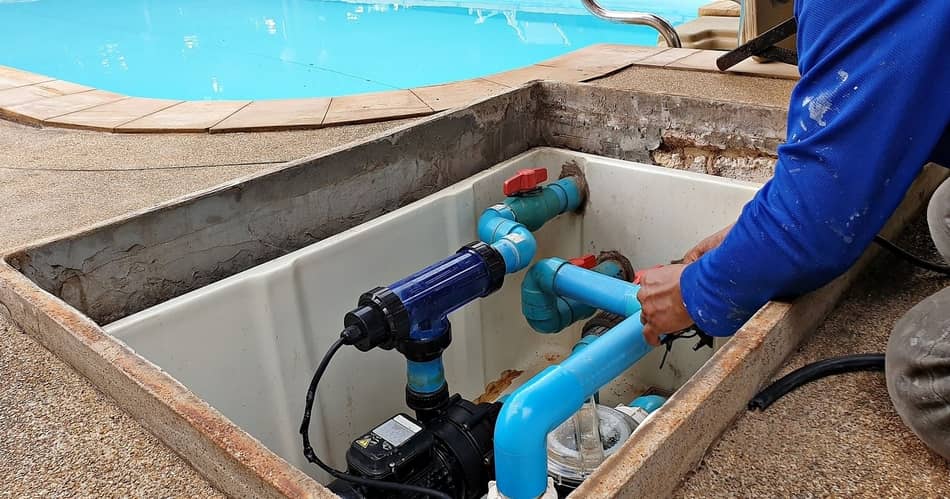
Swimming pools often have things like pumps, lights, and motors, all of which use electricity. So, to stay safe, there are some things you need to look after:
GFCIs
These GFCIs are great devices because they help keep your pool safe from electricity. They aren’t something you have to have, but they’re really good for extra safety. Think about using them for outdoor lights, the lights inside your pool, and those handy plug-in spots.
Electrical Outlets
When you need to plug in your pool stuff like motors and pumps, it’s super important to be careful where you do it. These electrical outlets need to be kept safe. They should have a lock, be guarded by something called a GFCI (ground-fault circuit interrupter), and be at least 5 feet away from the pool’s edge. If an outlet doesn’t have a GFCI, it’s really important to keep it even farther away, like 18 feet from the pool, to stay safe.
If you have an in-ground pool, you must ensure there’s at least one outlet with a GFCI. And don’t forget, it needs to be 5 feet away from the pool.
Underground Wires
If underground power lines exist, they must be at a safe distance from your pool, at least 5.5 feet (1.5 m) away from any part of it. Also, don’t think about putting your pool right on top of these cables. Some important wires, like the ones for lights, might need to be close to the pool. In such cases, you can use something called a raceway system to keep the wires near the pool but still safe.
When using a solid metal tube or conduit, to protect the wires, you have to ensure an open space of about 7 inches above it.
If you’re using a non-metal tube, it also needs a 7-inch space on top. But out of these 7 inches, 5 inches should be covered with concrete. If you don’t have that concrete layer, the space above must be a big 20 inches.
Maintenance Disconnect
If you own a pool, there’s another thing called a maintenance disconnect you should know about. This switch is used to turn off electricity to all electrical components in your pool, like lights and pumps. It’s a smart and safe thing to have. Make sure this switch is placed somewhere you can’t easily reach from the pool, maybe 7 feet away or more.
Related Article: How Do I Make My Hot Tub Private? 9 DIY Ways
Pool Clearances Around Power Lines
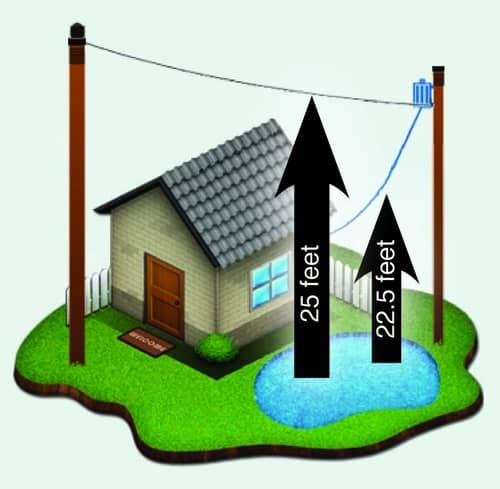
According to the National Electrical Safety Code, there are clear rules about how close a pool can be to electric lines. There should be a gap of at least 22.5 feet from overhead service electric lines for the pool water and things like diving boards that might touch the water. If we’re talking about the main overhead lines, the pool should be 25 feet (7.6 m) away.
This applies to all pools (in-ground and above-ground), hot tubs, and spas. If you’re unsure about underground electric lines near your place, just dial 811; they might help you with that. If these underground lines are close to your home, keep your pool at a safe distance of 5 feet away.
And remember, don’t put your pool right over these lines. If you ignore these guidelines, there could be penalties, and you might have to shift your pool or the lines.
Related Article: What Size PVC Pipe For An Above-Ground Pool? Explained
FAQ: People Also Ask
Why can’t you have a pool under power lines?
Putting a pool right under power lines is risky because electricity in combination with water can be deadly. That’s why ensuring the water in your pool is at least 25 feet away from those hanging power lines is super important.
How far does a pool have to be from electric lines?
A pool should be at least 5 feet away from GFCI-protected electrical outlets. Any outlets not used for the pool and lacking protection should be at least 18 feet away. It’s vital to maintain these distances to ensure safety around the pool.
What is the minimum height for power lines?
The minimum height for power lines is typically set to ensure road vehicles can pass safely. Usually, this height is at least 16 feet above the ground at the line’s lowest point. It’s essential for safety purposes on roads and highways.
Does a swimming pool need to be grounded?
Yes, a swimming pool needs to be grounded. Grounding helps prevent electric shock hazards by safely directing any stray electrical currents into the ground. Proper grounding is essential for the safety of swimmers and the overall pool equipment.
Final Thoughts
While it’s possible to put a swimming pool under power lines, it’s not recommended. Even with a 25-foot distance, there’s a chance power lines could fall into the water, leading to potential dangers. It’s best to find a safer spot for your pool to avoid putting yourself and others in danger.
Pools need electrical parts to power the pump and work properly. Every single cable should be shielded and looked at often to prevent hazards. Electrical outlets close to the pool must have GFCI protection and be kept a good distance away from the water. By following these steps, you can ensure fun and safe pool times for everyone around.


